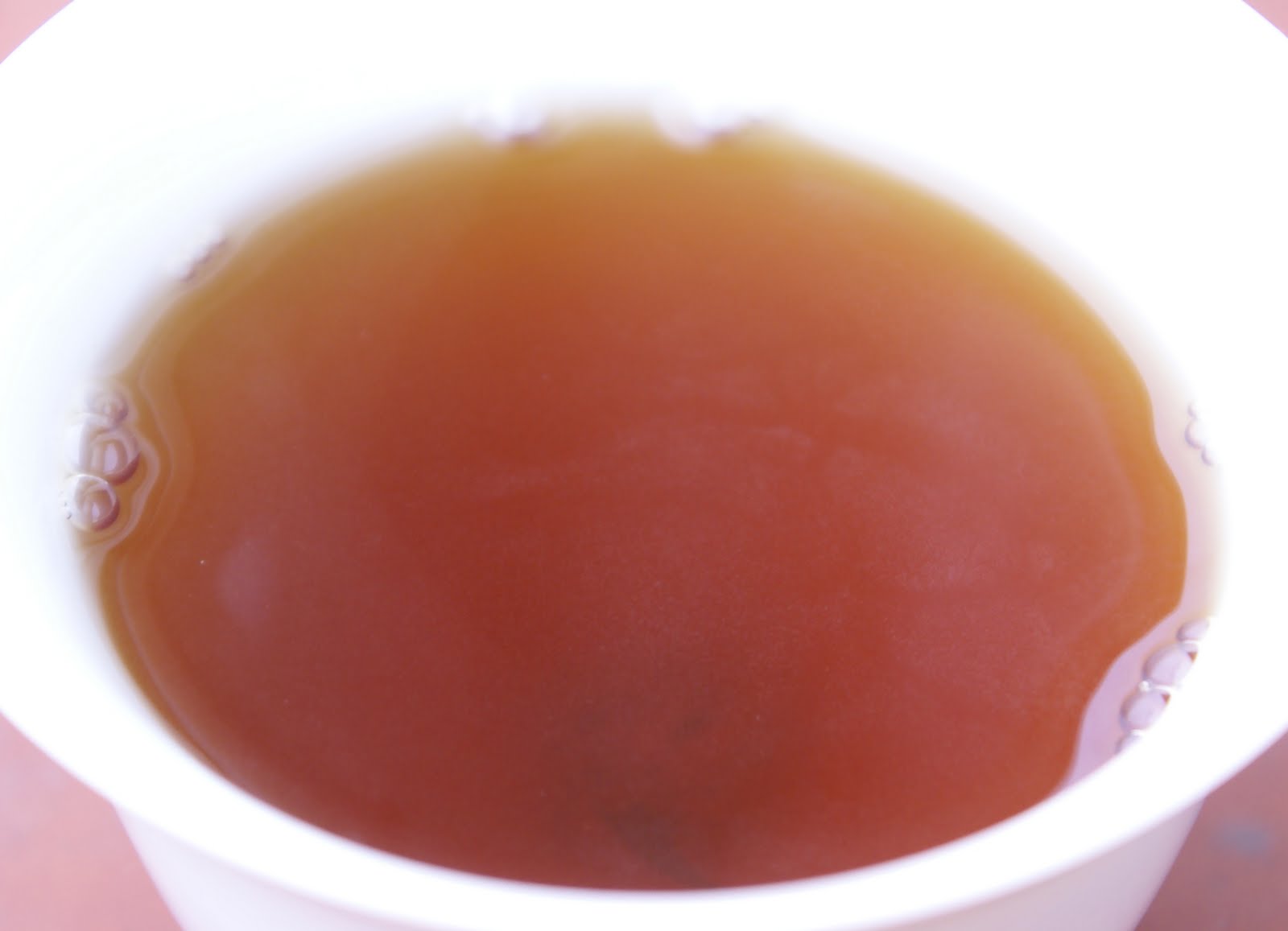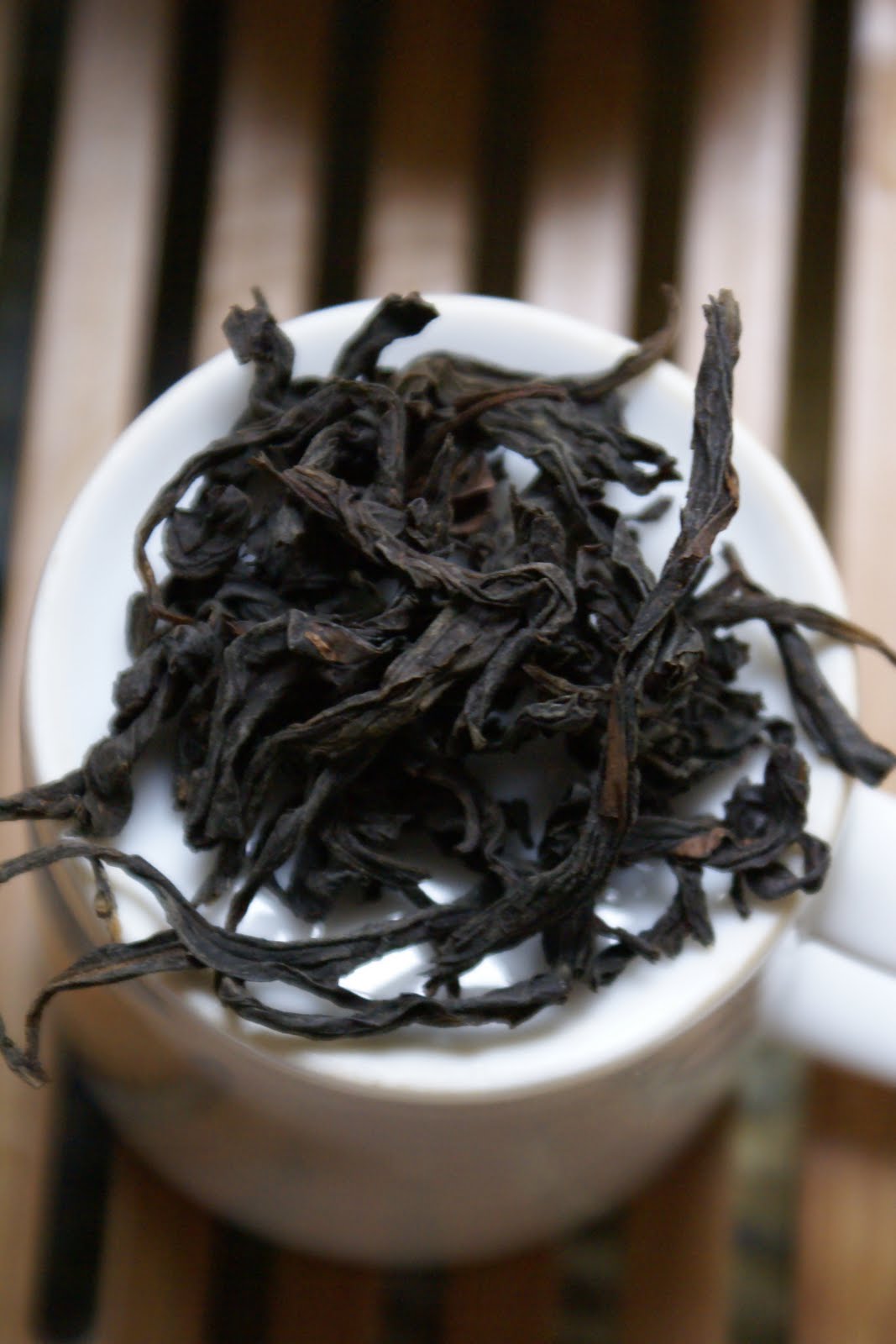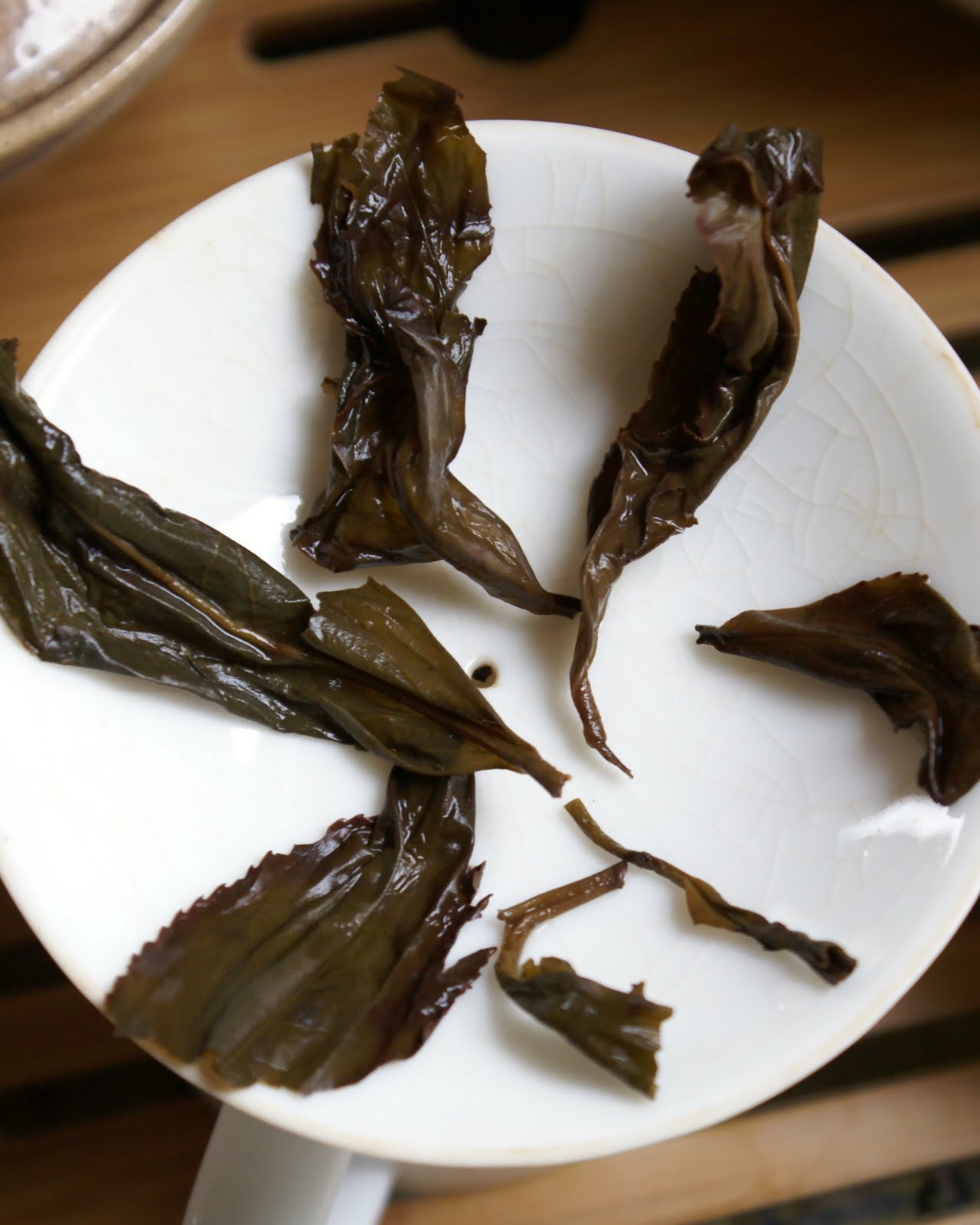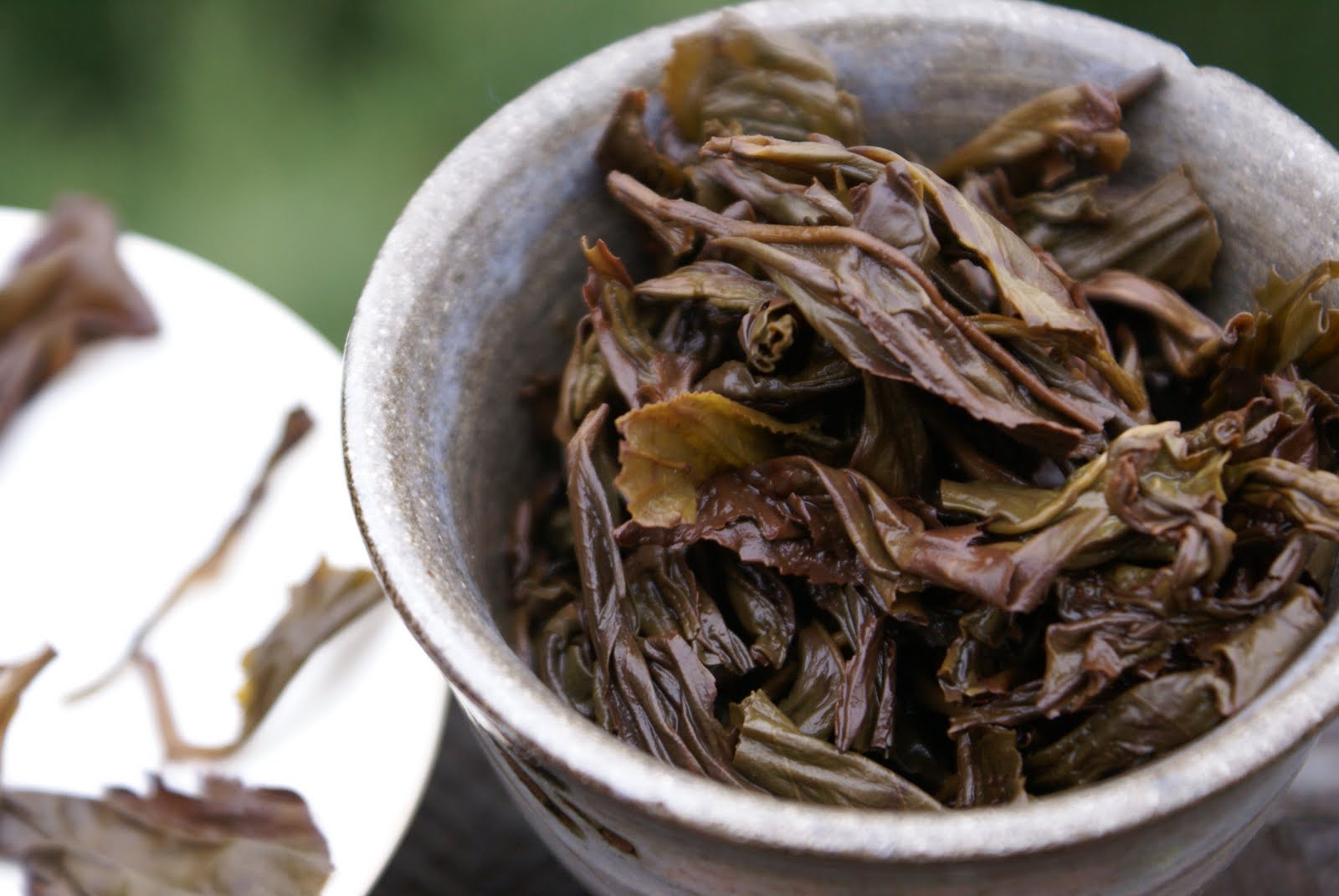2008 Rougui
Posted on 27 October 2009
Let’s continue the Wuyi theme with another classic tea from this region of China: Rougui. The name means ‘cinnamon’ (in the meaning of ‘cassia’)
and refers, predictably, to the heady spicy aroma exuded by both dry leaf and
brew.
and refers, predictably, to the heady spicy aroma exuded by both dry leaf and
brew.
While not as ubiquitous as Shuixian, Rougui is
a fairly common tea. This example from 2008 is again from the Dragon Tea House
on eBay, and I bought for the extremely modic sum of $8 / 100g (interestingly,
the 2009 now on
offer at this merchant has increased to $18).
a fairly common tea. This example from 2008 is again from the Dragon Tea House
on eBay, and I bought for the extremely modic sum of $8 / 100g (interestingly,
the 2009 now on
offer at this merchant has increased to $18).
This is proper tea: it becomes obvious as soon
as you look at the leaves. They are long, intact, and well taken care of. There’s
a distinctive and nicely nuanced spicy aroma, perhaps of cinnamon tree bark if
you insist. Far less roasted and chocolatey than your usual Wuyi tea, and
surely less than either of the Shuixian I reviewed a few days ago. The tea’s
medium body and moderate roast are also obvious in the colour, which is never
darker than a deep orange-amber.
as you look at the leaves. They are long, intact, and well taken care of. There’s
a distinctive and nicely nuanced spicy aroma, perhaps of cinnamon tree bark if
you insist. Far less roasted and chocolatey than your usual Wuyi tea, and
surely less than either of the Shuixian I reviewed a few days ago. The tea’s
medium body and moderate roast are also obvious in the colour, which is never
darker than a deep orange-amber.
The tea’s ‘attack’ when you take a sip into your
mouth is strongly spicy, indeed redolent of powdered cinnamon, but the whole is
not very distinctive in flavour: from mid-palate on it recedes into a fairly
vague Wuyi typicity, before a well tannic and perhaps slightly mineral finish.
I have found that the most enjoyable sessions are those with a very high dosage
(6–7g / 100ml of water) and short infusion times. There’s never much roast in
the foreground but a very strong spiciness especially in the first infusion
(later, it tends to wane rather quickly).
mouth is strongly spicy, indeed redolent of powdered cinnamon, but the whole is
not very distinctive in flavour: from mid-palate on it recedes into a fairly
vague Wuyi typicity, before a well tannic and perhaps slightly mineral finish.
I have found that the most enjoyable sessions are those with a very high dosage
(6–7g / 100ml of water) and short infusion times. There’s never much roast in
the foreground but a very strong spiciness especially in the first infusion
(later, it tends to wane rather quickly).
 The short-livedness of the cinnamonny aroma and
The short-livedness of the cinnamonny aroma andthe somewhat cloudy appearance led me to think this tea could actually be
a fake. I mean a tea artificially flavoured with powdered spice. Mind you,
should my intuition be confirmed, it’s been done in a fairly subtle,
well-handled way, but I couldn’t help thinking that heady tree bark aroma was a
little too obvious and disjointed to be really natural. (It’s fairly common to
see China’s most popular tea sbeing counterfeited by artificial aromatisation: ‘Milk
Oolong’ – see review here – is another frequent example). Looking at the wet leaf it’s obviously a plantation tea: leaves are thin and fragile with litte structure, but processing has been good.
Dragon Tea House are a reputable merchant and I’m
keen to give them the benefit of a doubt on this tea, which if you disregard
where the spicy aroma is coming from, is actually a nicely balanced, moreish
tea that’s excellent value for money.
keen to give them the benefit of a doubt on this tea, which if you disregard
where the spicy aroma is coming from, is actually a nicely balanced, moreish
tea that’s excellent value for money.




